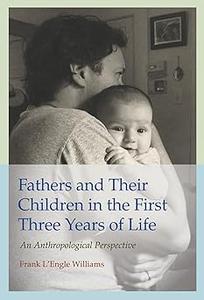- Joined
- Jul 3, 2023
- Messages
- 44,662
- Reaction score
- 1
- Points
- 38

Free Download Frank L'Engle Williams, "Fathers and Their Children in the First Three Years of Life: An Anthropological Perspective (Volume 20) "
English | ISBN: 1623498074 | 2019 | 234 pages | PDF | 11 MB
How ancient is father care of human infants and young children, and why did it emerge? Is it possible that father care arose among the ancestors of modern humans and became essential for survival? Or is it a recent, though variable, development? Is father care an evolved trait of Homo sapiens or is it a learned cultural behavior transmitted across generations in some societies but not others?
In this important study, Frank L'Engle Williams examines the anthropological record for evidence of the social behaviors associated with paternity, suggesting that ample evidence exists for the importance of such behaviors for infant survival. Focusing on the first three postnatal years, he considers the implications of father care-both in the fossil record and in more recent cross-cultural research-for the development of such distinctively human traits as bipedalism, extensive brain growth, language, and socialization. He also reviews the rituals by which many human societies construct and reinforce the meanings of socially recognized fatherhood.
Father care was adaptive within the context of the parental pair bond and shaped how infants developed socially and biologically. The initial imprinting of socially recognized fathers during the first few postnatal years may have sustained culturally sanctioned indirect care such as provisioning and protection of dependents for nearly two decades thereafter. In modern humans, this three-year window is critical to father-child bonding. By increasing the survival of children in the past, present, and quite possibly the future, father care may be a driving force in the biological and cultural evolution of
Read more
Buy Premium From My Links To Get Resumable Support and Max Speed
FileFox
l3fi7.rar
Rapidgator
l3fi7.rar.html
Uploadgig
l3fi7.rar
Links are Interchangeable - Single Extraction



